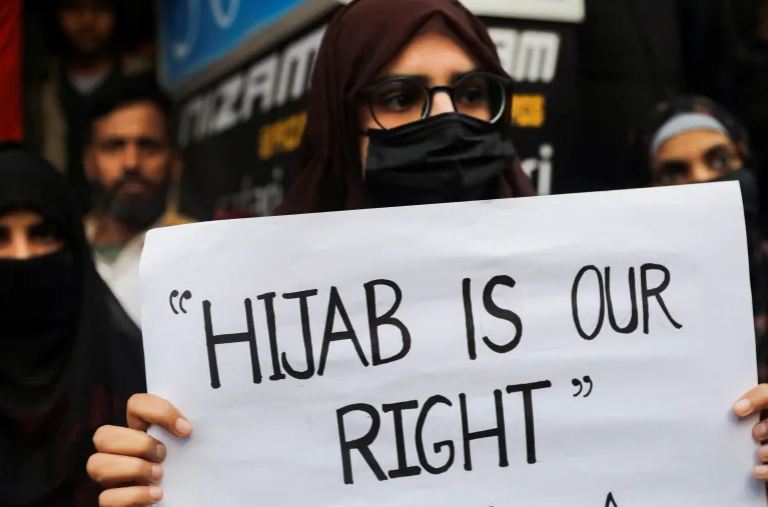Alwaght- A court has upheld a ban on hijab for Muslim schoolgirls in India's Karnataka state, violating fundamental rights of about 220 million Muslims, 15.5% population of the country.
“We are of the considered opinion that wearing of hijab by Muslim women does not form a part of essential religious practice,” Chief Justice Ritu Raj Awasthi of the Karnataka High Court said in a judgement on Tuesday.
He said the government had the power to prescribe uniform guidelines, dismissing various petitions challenging the order.
Students who had challenged the ban in court had said wearing the hijab was a fundamental right guaranteed under India’s constitution and an essential practice of Islam.
Lawyer Anas Tanwir, who said he will represent the girls now planning to move the Supreme Court, called the Karnataka court’s ruling “disappointing” and “erroneous”.
Tuesday’s ruling could set a precedent for the rest of the country. Currently, there is no central law or rule on school uniforms across the country, but the Karnataka ruling could prompt more states to issue such guidelines.
The dispute began in January when a government-run school in Karnataka’s Udupi district barred students wearing hijabs from entering classrooms, triggering protests by Muslims and counter-protests by Hindu students.
More schools and colleges in the state followed with similar bans and the state’s top court disallowed students from wearing the hijab until it delivered a verdict.
In India, the hijab has historically been neither banned nor limited in public spheres.
Many in Karnataka say Muslim girls have worn the hijab in schools and colleges for decades, just as Hindus, Sikhs and Christians have done with symbols of their respective symbols.
Ahead of the verdict, Karnataka authorities announced closures of schools and colleges, and imposed restrictions on public gatherings in some parts of the state to prevent potential trouble.
Last month, federal Home Minister Amit Shah said he preferred students sticking to school uniforms instead of any religious attire.
Karnataka’s ban had led to protests in some other parts of the country too and drew criticism from international community.



























